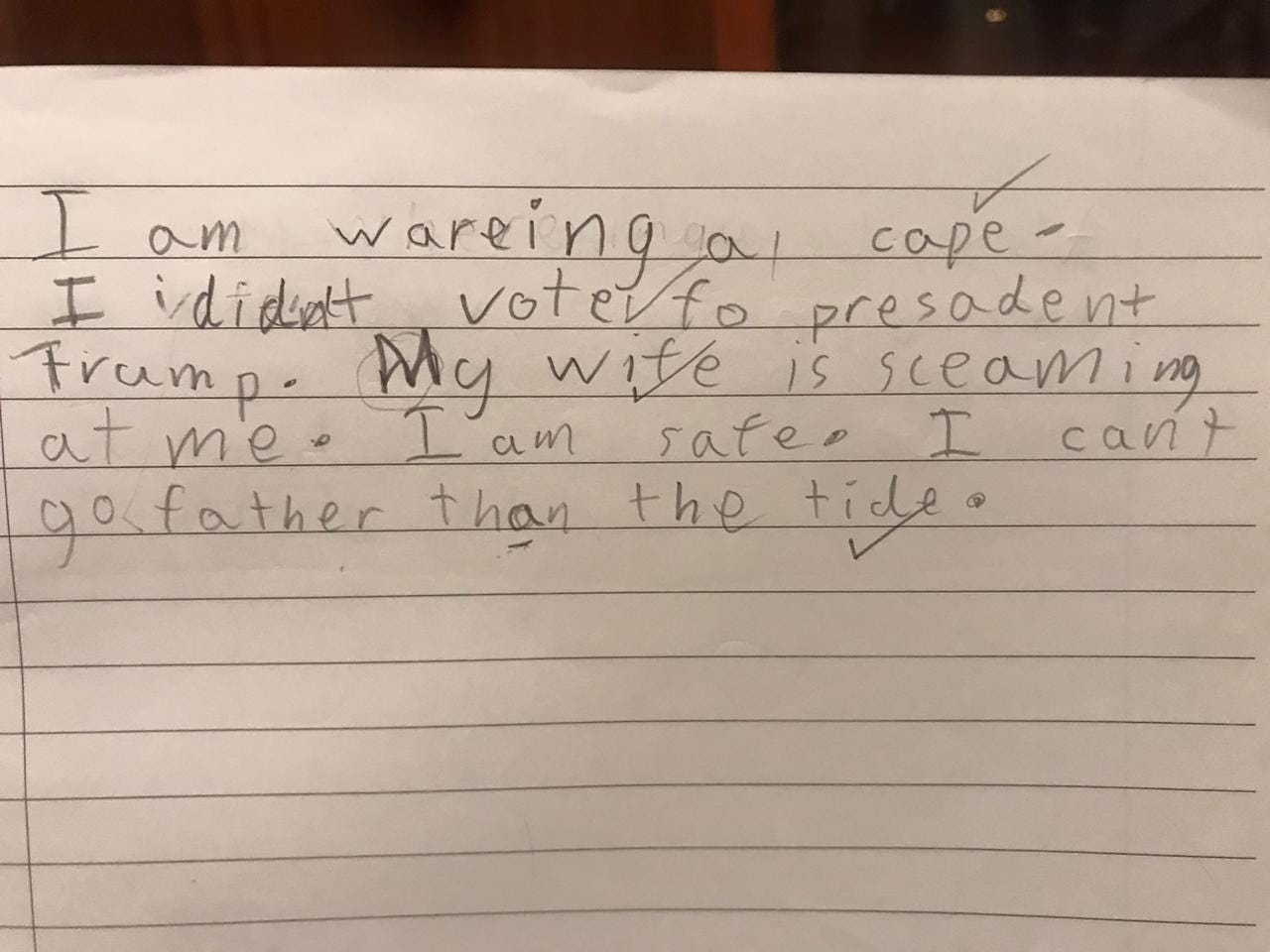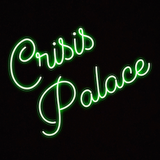38: Reacting to a violent system
'A lot of folks are tired of that. They’re not going to take it anymore.'

March to the BPD station today
This is going to be short because we decided to go to a rally and march this evening organized by Mass Action Against Police Brutality. It is hard to know whether to do anything these days but we ultimately decided it was important to go. My friend Swedlund refers to this kind of decision we all have to regularly make these days as a Catch 2020.
This has been a tough week for people. I’m not exactly sure what to say and I’m also mindful of what is needed and not needed of me right now so I’m going to use this space to share some of the best things I’ve read by other people recently, about the most recent rash of state violence against Black people, and this topic more broadly.
…
Of Course There Are Protests. The State Is Failing Black People, by Keeanga-Yamahtta Taylor
If there were ever questions about whether poor and working-class African-Americans were disposable, there can be none now. It’s clear that state violence is not solely the preserve of the police. …
The convergence of these tragic events — a pandemic disproportionately killing black people, the failure of the state to protect black people and the preying on black people by the police — has confirmed what most of us already know: If we and those who stand with us do not mobilize in our own defense, then no official entity ever will. Young black people must endure the contusions caused by rubber bullets or the acrid burn of tear gas because government has abandoned us. Black Lives Matter only because we will make it so.
…
The Death of George Floyd, In Context, by Jelani Cobb
The video of Floyd’s death is horrific but not surprising; terrible but not unusual, depicting a kind of incident that is periodically reenacted in the United States. It’s both necessary and, at this point, pedestrian to observe that policing in this country is mediated by race. …
There is more to be said about the burgeoning genre of videos capturing the deaths of black Americans, and the complex combination of revulsion and compulsion that accompanies their viewing. They are the macabre documentary of current events, but the question remains about whether they do more to humanize or to objectify the unwilling figures at the center of their narratives. Death is too intimate a phenomenon to not be distorted by a mass audience. Yesterday, very few of us knew who George Floyd was, what he cared about, how he lived his life. Today, we know him no better save for the grim way in which that life met its end.
…
The Toxic Intersection of Racism and Public Space, by Brentin Mock
The Jane Jacobian idea of “eyes on the street” very easily becomes “eyes on the black people” — which is why some African Americans disengage from public spaces like parks altogether. These peaceful green spaces just as easily induce anxiety and trauma for black and brown people, especially when they know the cops can be unleashed at any moment.
White people can weaponize the police against people who aren’t white, and that power only flows in one direction. The way Amy Cooper reacted in the video shows that she was aware of that power dynamic. All it took was for a white person to send a bat signal — or in Amy Cooper’s case, a racial dog whistle — to make a garden unsafe for a black person.
…
From Chaotic Minneapolis protests spread amid emotional calls for justice, peace
“There are folks reacting to a violent system,” [Michael McDowell, founder of Black Lives Matter Minneapolis] said. “You can replace property, you can replace businesses, you can replace material things, but you can’t replace a life. That man is gone forever because some cop felt like he had the right to take his life. A lot of folks are tired of that. They’re not going to take it anymore.”
That’s why, he said, “Minneapolis is burning.”
…
“I don’t think that folks are being anywhere as violent as the system has been toward them,” he said.
…
People Can Only Bear So Much Injustice Before Lashing Out, by Elie Mystal
The fact that most black people do not pick up the rock in that situation is a miracle. The fact that the overwhelming majority of black people respond to the violence and terrorism practiced against us with words and songs instead of rocks and bricks is altogether supernatural. …
This country could be on fire almost every night in almost every city. It’s not, because most black people in this country choose to exercise tremendous restraint. Most black people are still willing to talk this out. Most black people have the courage and fortitude to withstand the violence done against us without lowering ourselves to the level of an American police officer.
America should be more thankful for that. And it should remember that it’s a choice.
…
Breonna Taylor Was Murdered for Sleeping While Black, by Elie Mystal
[Breonna] Taylor’s death is a routine way for black people to die in this country, because the country long ago decided that murdering black people is a legal thing for cops to do. Taylor’s death wasn’t a tragic accident; it was the predictable result of a system that does not value black lives.
Almost every major institutional actor in this country chooses to let the cops get away with murder. The media makes this choice every time it decides to reprint a police report, uncritically, as if the cops can be trusted to represent the truth. Judges make this choice when they sign open-ended search warrants or retroactively admit evidence obtained without a warrant. Mayors and governors make this choice when they seek the endorsement of police unions and bend over backward to keep those unions happy. And prosecutors, juries, and justices make this choice when they refuse to hold cops criminally or financially accountable for their crimes.
…
Yes, Black America Fears the Police. Here’s Why., by Nikole Hannah-Jones
For those of you reading this who may not be black, or perhaps Latino, this is my chance to tell you that a substantial portion of your fellow citizens in the United States of America have little expectation of being treated fairly by the law or receiving justice. It’s possible this will come as a surprise to you. But to a very real extent, you have grown up in a different country than I have.
As Khalil Gibran Muhammad, author of The Condemnation of Blackness, puts it, “White people, by and large, do not know what it is like to be occupied by a police force. They don’t understand it because it is not the type of policing they experience. Because they are treated like individuals, they believe that if ‘I am not breaking the law, I will never be abused.’”
We are not criminals because we are black. Nor are we somehow the only people in America who don’t want to live in safe neighborhoods. Yet many of us cannot fundamentally trust the people who are charged with keeping us and our communities safe.
…
'I Do It To Survive': Being Black In America Means Adapting To Constant Risk, by Theresa Okokon
I cannot accept that George Floyd was killed mere minutes from where my family lives, where my niece and nephews could have witnessed it. It messes me up to see images of so many people in the street, risking their lives and their bodies still unadapted to the coronavirus, forced to protest. I do not accept the message of protection and service emblazoned on the side of cop cars, when the men who exit those vehicles murder us. We are not safe. We cannot go for a jog. We cannot be in our own homes. We cannot go bird watching.
…
From How Tear Gas Works: A Rundown of the Chemicals Used on Crowds
“I think of tear gas as a pain gas,” he says. “Because it directly activates pain-sensing receptors.” [says Sven-Eric Jordt, an anesthesiologist at Duke University.] …
Given the risk of injury or damage, [Rohini Haar, a doctor with Physicians for Human Rights and a public health scientist at the University of California, Berkeley,] says that there are almost no scenarios where the use of tear gas makes sense for controlling crowds. “I can see very few discrete situations where there might be a direct need for tear gas to protect public safety,” she says. “One thing we see more and more now is tear gas causing panic, disorder and chaos. There’s mass deaths from stampedes because tear gas was used.”
…
From Jamelle Bouie’s newsletter:
…it is impossible not to note the contrast in how the Minneapolis protesters have been treated compared with armed demonstrators protesting lockdowns in Michigan and other states. I wrote earlier this month about how the idea of “freedom” is shaped by race and racism. Here, we have a perfect example of exactly that: how the perceived legitimacy of protest and dissent is shaped by who is doing the protesting. Screaming, gun-toting white people can demonstrate with little resistance. Mourning black people, on the other hand, are liable to face state violence.
…
Finally if you are angry and want to do something, you can give to these groups:
Or find a racial justice group in your own community also don’t call the police and also educate yourself about how to be anti-racist because none of us are free until all of us are free.
More Links
- More than 80 nursing homes in Massachusetts have 20 or more Covid-19 deaths. That’s one out of every five facilities.
- The Navajo Nation wants to use half of its federal Covid-19 relief funds on clean water projects, as 30 to 40% of its households lack running water. That could be blocked under restrictions in the CARES Act.
- Coronavirus is a “sliding doors” moment that could change the trajectory of our carbon emissions. Really into that Gwyneth reference.
- What Were Sports?
- Among ill-advised re-openings, a risk assessment of summer activities. Haircut? Medium to high risk!
- “Indie folk” is kind of a cringey genre name, but this newly updated list is a real gold mine.
- An oral history of Punky Brewster and the horrifying episode where Cherie locks herself inside of a refrigerator.
- Artist, cook, and food writer Tunde Wey has some words for a problematic restaurant industry as the tailspin continues: “Let it die.” (Definitely read this one.)
Listening
Jamie got me an iPod for my birthday because I have this huge collection of mp3s that I haven’t really listened to in years. So I loaded it up and have been playing a lot of older music that had kind of fallen off my radar. One example is Gentlemen by The Afghan Whigs. Forgot about this beautiful slow burn with vocals by fellow Columbus musician Marcy Mays.
Watching
I am watching Riverdale right now and honestly I don’t want to talk about it that is embarrassing.
I Endorse
Enjoying a nice breeze coming in through a window.
One of my favorite writers is Simon, who is the 8-year-old son of my two close friends who live in Cambodia. I previously posted his reinterpretation of Mama Mia Papa Pia, and he is also known for a powerful personal essay on what everyone in the house was doing one day. His latest is probably his best work yet, a poem that he was kind enough to allow me to publish here:

Keep these words in mind. You are safe. You can’t go farther than the tide.
Tate

